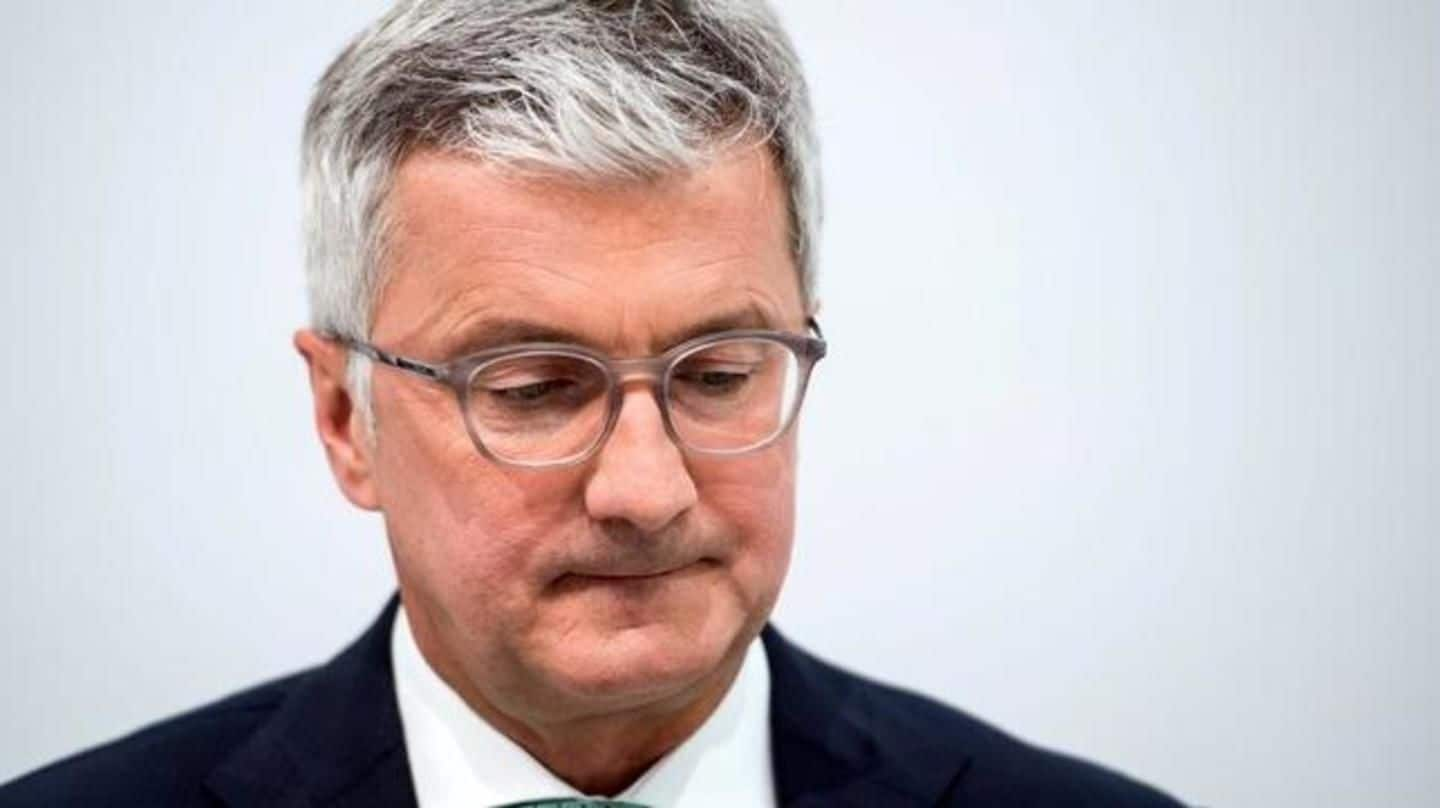
Audi CEO arrested in connection to the Volkswagen emissions scandal
What's the story
Rupert Stadler, the CEO of Audi, has been detained by German authorities in connection to the Volkswagen emissions scandal. A court hearing to determine whether Stadler will remain in prison is currently underway, said Audi in a statement, adding that "the presumption of innocence remains in place for Mr. Stadler". Several others are being investigated in the case, and some have already been arrested.
Investigation
Prosecutors had reportedly been pushing for Stadler's arrest
Reportedly, prosecutors in the Volkswagen emissions scandals had pushed for Stadler's arrest over the last four years, over fears that he might try to evade justice. Last week, Stadler's residence in Munich was also raided by prosecutors as part of the ongoing investigation. Currently, 20 people are under the scanner for their involvement, and nine Volkswagen managers have already been charged in the US.
The scandal
The scandal dates back to 2015
The scandal surfaced in September 2015 after the US Environmental Protection Agency issued a notice to Volkswagen for violating the Clean Air Act. Following the uncovering of the scandal, then Volkswagen CEO Martin Winterkorn resigned, and Porsche CEO Matthias Muller was appointed to replace him. Muller promised that he would "leave no stone unturned" in the investigation. Subsequently, in March 2017, Volkswagen pleaded guilty.
Detection
A ICCT-West Virginia university research project uncovered the issue
The International Council on Clean Transportation (ICCT), in a 2013-2014 research project in collaboration with West Virginia university, showed that certain Volkswagen cars were emitting much more pollutants than they were supposed to, prompting an EPA investigation in 2014. Volkswagen claimed to have fixed the issue, but real-world tests could not match up to lab tests. This prompted regulators to investigate the discrepancy further.
Defeat device
How Volkswagen cheated environmental regulators
Following the investigation, the EPA accused Volkswagen of cheating emission tests via the use of a "defeat device" in certain car models. The device included an intricate code which turned on the pollution-control system of a car when it was being tested for emissions, while the car spewed higher levels of pollutants otherwise. 11 million such cars were sold by Volkswagen since 2008.